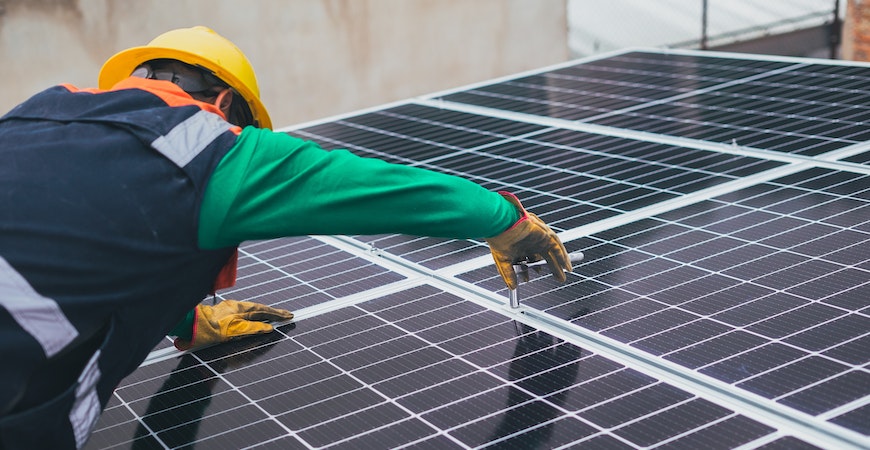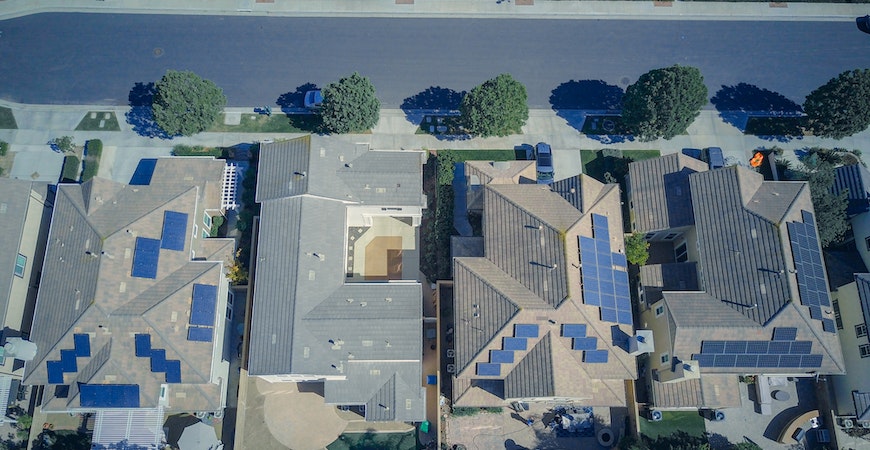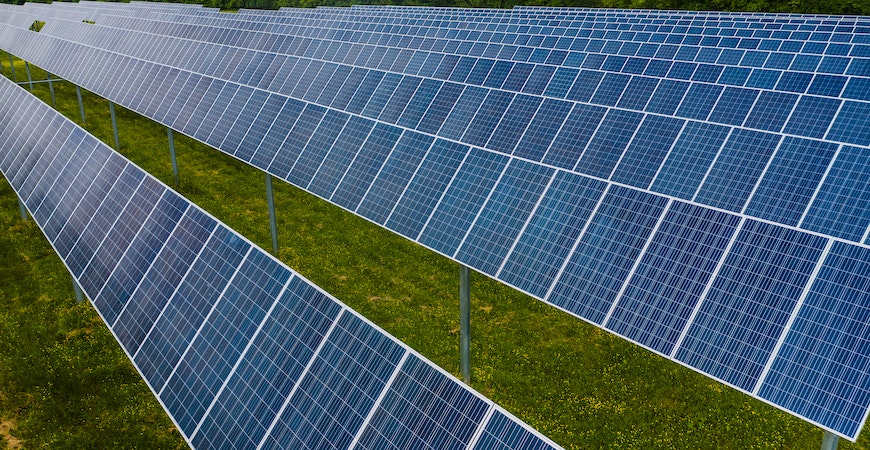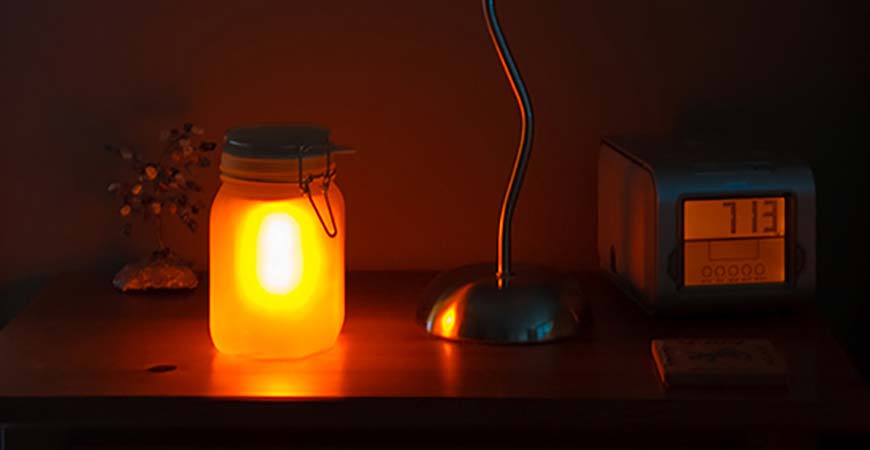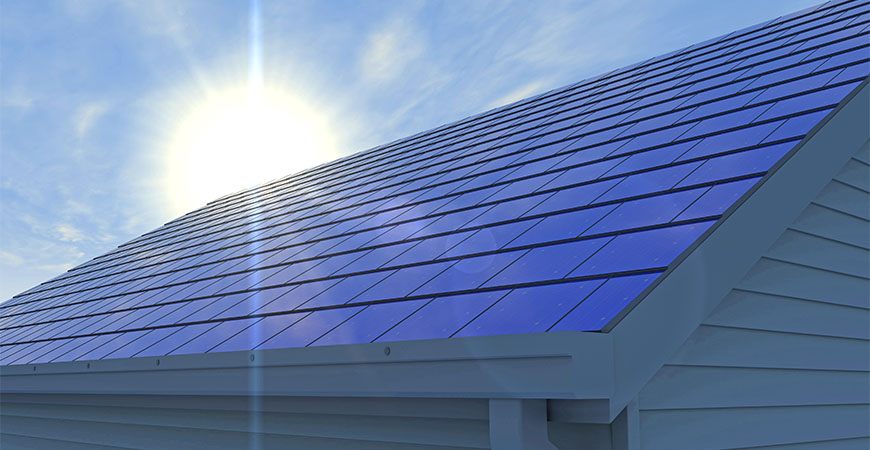
Solar Panels: Making Your 2023 Energy Efficient
Whether you’re looking to go green or save some green, solar energy panels may help. In fact, installing solar panels is one of the top home improvement trends for 2023.
So, is solar power right for your home? Read our guide to find out.
How Do Solar Panels Work?
Before launching into a cost-benefit analysis, it’s good to take a step back and understand what solar panels actually do.
First, let’s talk about how much power the sun gives the Earth. Every hour, the sun provides enough energy to power the planet for an entire year.
However, that energy needs to be captured and stored. Otherwise, it’s absorbed by the Earth’s atmosphere or reflected back out into space.
Enter photovoltaic technology. The vast majority of residential solar energy panels use PV technology to absorb sunlight and convert it to electricity.
Each PV unit is called a cell. They consist of extremely thin layers of semiconductor materials stuffed between protective glass or plastic.
How Much Energy Does a Solar Panel Product Produce?
Well, a single cell may only produce a watt or two of power.
However, most homes aren’t installing just a single cell. Instead, they install solar panel arrays made up of many individual cells.
Arrays are modular. So, they can be manufactured in almost any size to meet almost any electrical need.
So, while a single cell doesn’t pack an electrical punch, larger arrays can produce enormous amounts of power. For instance, the Solar Star PV power station in California produces 579 megawatts of electricity.
How Do Solar Panels Store Energy?
Now, this discussion has been primarily around how much energy solar panels produce. This skips over an essential question behind something that only produces electricity when the sun is out: how do solar panels store energy?
The answer is simple and likely found in numerous forms around your house: solar panels use batteries.
Typically solar energy panels use lithium-ion batteries similar to the ones used in your phone and other devices. This allows the converted sunlight to be stored and used when the sun isn’t shining, such as at night or on cloudy days.
The Benefits of Solar Panels
Solar energy panels are a renewable source of power. That means they play a critical part in reducing climate change and protecting the environment.
While that is a good thing, it’s understandable if homeowners place greater importance on the direct benefits of this energy source. Namely, how it affects their pocketbooks.
Here, the benefits of solar panels run along three tracks. First, an energy-efficient household will have a smaller energy bill to pay at the end of every month.
It’s difficult to put a precise number towards this solar panel benefit, as that will depend on a variety of factors:
- Your electricity usage
- The size of your solar energy panel system
- Where you place your solar panels
- How much sunlight hits the panels
The second financial benefit stems from the Inflation Reduction Act of 2022. This legislation provides a variety of financial incentives, including tax credits, to homeowners upgrading their homes with energy-efficient technologies.
Many state governments offer additional incentives for converting to solar energy. You may also discover manufacturer or utility company rebates that further reduce the cost.
And solar panels are designed to last. Most should hold up to extreme weather and last for decades.
The final financial benefit of solar panels comes from your home’s value. Homes with solar energy panels installed tend to have a higher resale value than comparable homes without.
The Disadvantages of Solar Energy Panels
Perhaps the most understandable disadvantage of solar panels is that they only work in the sun is shining. At night or during cloudy days, your home will need to rely on stored energy or your community’s traditional power grid.
So, you’ll still be able to keep the lights on inside when sunlight is minimal outside. But every cloudy day reduces solar technology’s benefits.
Perhaps the other most commonly cited con of residential solar energy is the installation cost. Now, as stated previously, there is a wide range of financial incentives that can lower the upfront cost.
However, some people may find that those incentives don’t apply to their situation or don’t lower the upfront cost enough to make it financially feasible. And because solar panel installation isn’t generally considered a DIY project, you will need to rely on professionals to add them to your home.
There are also some other potential concerns for homeowners. For instance, their roof or yard may not receive a lot of sunlight, which would make their new solar panels more of an expensive accessory instead of a cost-saving addition.
And on top of that, there are those that don’t find solar panels particularly attractive. (That said, innovation has led to new designs that closely resemble shingles.)
While they are durable, solar panels need to be maintained and cleaned to maintain effectiveness. For example, mold and mildew stains may interrupt the absorption of the sun’s rays, decreasing the efficiency of each panel.
Luckily, there are products out there, such as Wet & Forget Xtreme Reach™ Hose End, that are safe to use on solar panels. (And with Wet & Forget, a single application a year is often enough to keep mold and mildew stains at bay.)
Where’s the Best Place to Put Solar Panels?
With solar energy panels, you generally have two options as to where to place them.
The first, obviously, is your roof. Of course, not just any roof will do.
To maximize the benefits of your solar panels, your roof should meet the following criteria:
- It doesn’t sit in the shade or below tree coverage.
- It’s south-facing.
- It has a slope of 15 to 40 degrees.
- It’s not in need of repair or replacement.
Luckily, if you determine your roof isn’t a candidate for new solar energy panels, you have a couple of other options at your disposal.
Ground-mounted panels allow you to position them anywhere in your yard where they may be more likely to receive sun. The downside, however, is they tend to be pricier than the rooftop variety.
If that’s not an option, either, you may have luck with community solar. Community solar is when multiple homes join together to share a solar array that’s installed nearby.
Many community solar programs allow homes to join at different purchasing levels. That means you can dip your toes into the solar energy world without such a large upfront commitment.
Make Your 2023 Energy Efficient With Solar Energy Panels
Making your home more energy efficient may be an investment, but the return will quickly come in the form of reduced energy and utility bills. So, whether you’re looking save green or go green, solar energy panels may be an option for you.
For more home improvement ideas throughout 2023, bookmark AskWetAndForget.com right now!

